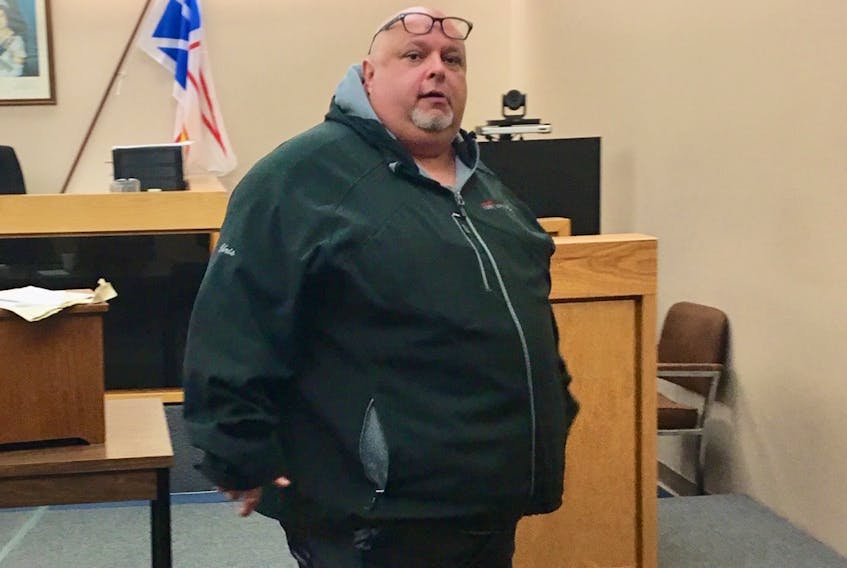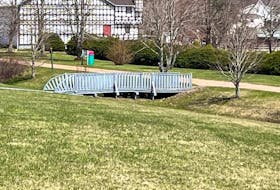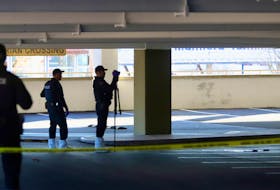A St. John's judge turned up the heat on a Paradise man Thursday, finding him guilty of stealing electricity.
"I'm satisfied beyond a reasonable doubt," Judge Mike Madden said following Christopher Todd Martin's trial at provincial court in St. John's.
Martin, 49, was convicted of one count of fraudulently using electricity under $5,000. Electricity was flowing illegally to Martin's house on Croydon Street for about a week during the summer of 2017.
It began on June 27, 2017, when Martin had his electricty disconnected by a Newfoundland Power field service representative for not paying his bill for a long period of time.
However, the representative testified that when he passed by Martin's house during a trip to the grocery store a few days later, he noticed several lights were on in the house. When the employee returned to work a few days later, he informed Newfoundland Power's revenue protection adviser, Allison Hicks, who checked the account and verified service had not been restored.

When employees showed up at Martin's house on July 2, 2017, it was discovered the meter had been tampered with and prohibited parts added.
Hicks testified that she and Const. Adam Manuel also went to Martin's house to look at the meter, "because you don't know what you're facing." She said two metal strips had been inserted in the meter, in place of parts that had been removed during disconnection the week before. The metal strips allowed power to flow freely.
Martin was charged shortly afterward.
Martin, who represented himself in the trial, asked Hicks if just anyone could perform such technical tasks without professional training.
"Wouldn't you agree only someone with training, not the average person, would be able to do something like that?" he asked.
"I don't agree," Hicks replied, adding that many people have access to that kind of information. The judge forbade her from saying from where.
When asked if there were many incidents of tampering reported, Hicks replied, "Yes, it's rising."
Manuel testified that when he got to the house, Martin led him to his shed to show he had a generator, and told him that was how he was getting his power. However, Manual said, the generator wasn't on when he got there.
Martin opted not to testify, but called two witnesses to the stand — a neighbour, an electrician, who testified he heard and saw the generator running at Martin's property; and a woman who babysits Martin's child. She also testified that she saw the generator running and even offered to help Martin pay his power bill.
In closing arguments, Crown prosecutor Jennifer Colford pointed out that neither the Newfoundland Power field representative nor Manuel heard the generator running when they were at Martin’s house.
"There's no doubt he had a generator," Colford said, "but at that point, it would have been a generator sitting in a shed."
Colford said it would only make sense to conclude it was Martin who tampered with the meter or had someone act on his behalf.
"No one else would do it," she said. "Whether it was him or someone else, he benefitted from it."
When he had the chance to speak, Martin said, "there's no evidence to show it was me who did this."
But in rendering his decision, Madden pointed out that he didn't need direct evidence to convict Martin.
"It's based on common sense. It's based on reason. It's based on logic," Madden said.
Madden said it's virtually impossible to prove a case to an absolute certainty.
"Sometimes witnesses are called in which the court is asked to draw an inference," Madden said. "Other plausible theories must be based on logic and cannot be based on speculation."
The only "reasonable inference that can be drawn" Madden said, is that Martin is guilty of the crime, "whether (the tampering) was Mr. Martin or at Mr. Martin's instruction."
Martin's sentencing hearing is scheduled for Nov. 28. Madden asked Martin if he wanted to avail of legal advice to prepare for the hearing, and Martin said he would.
Twitter: TelyRosie









